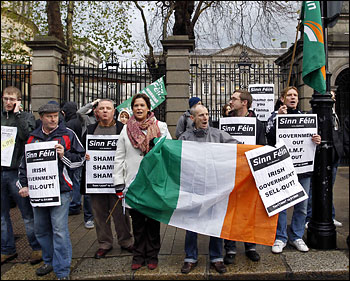Debt crisis tests German ties to euro
Gallery

Washington Post Staff Writer
Wednesday, December 1, 2010; 11:03 PM
BERLIN - The deepening woes of Europe's weakest economies are raising fresh doubts about the euro. But the future of the world's most ambitious monetary experiment will be decided not in troubled Ireland, Greece, Portugal or Spain, but here in Germany - Europe's economic powerhouse.
The Germans surrendered their mighty deutsche mark in 2001, their stalwart economy anchoring a union of 16 European nations sharing a common coin: the euro. But with fiscal turmoil escalating across much of the euro zone, the currency has entered an uncertain period.
Although it reversed some of its recent declines against the dollar on Wednesday amid hopes that the European Central Bank will aggressively intervene to prop up the bonds of ailing European nations, some still fear that the currency could destabilize in the coming weeks and months.
The key question now is: How long will the Germans prop it up? In one poll released this week, almost half of the Germans surveyed said they were growing weary of the euro.
To defend the currency, the notoriously frugal taxpayers here have already had to cover the largest share of the cost to rescue profligate Greece, and, now, Ireland. As pressure mounts for billions more to shore up Portugal and Spain, and perhaps even Italy, Germany's growing tab, analysts say, is posing the greatest test yet to German willingness to remain in the euro union.
It has come down to a numbers game, many here say. Germany, along with the International Monetary Fund and the 15 other nations that share the euro, set up a trillion fund this year to contain Europe's debt crisis and protect the euro. Although the fund may be enough to bail out Portugal and Spain, throwing a lifeline to Italy - the world's seventh-largest economy - would require far more cash. Even bailing out Spain - the fourth-largest economy in the euro zone - could leave the fund so depleted that Chancellor Angela Merkel may have no choice but to go back to parliament here in a highly charged bid for more German support.
Merkel and other German officials have steadfastly stuck by the euro, and most still consider any move to leave the currency highly unlikely. But analysts say Merkel would probably face a surge of opposition if she is forced to seek additional German money to save the euro.
Others say there may be different ways to shore up the currency without more German aid. Nevertheless, analysts say the prospect of a German withdrawal from the euro, an event that probably would doom the currency, is becoming less and less unthinkable.
"I think it is quite politically dangerous for her to go back for more," said Thomas Mayer, chief economist with Deutsche Bank in Frankfurt. "The government has to be careful not to trigger a grass-roots political movement here, like the tea party in the United States, against the euro. You can already feel it."


0 comentarios